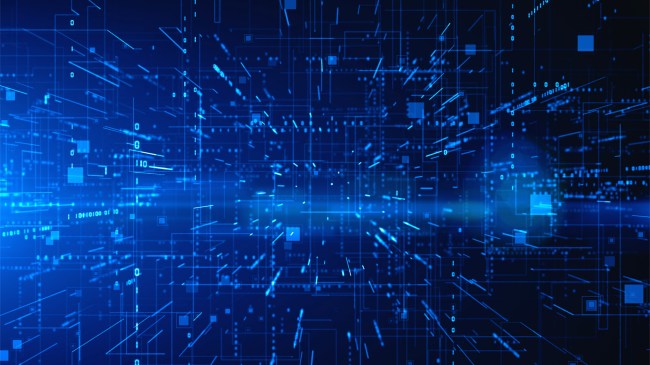iStockphoto
Many scientists have studied and wondered whether the universe is really nothing more than some sort of simulation. Now, one scientist has put forth the theory that the law of gravity could be proof that our universe is simply made up of a computer-like code.
One group of scientists put the odds of us being in a simulation at 1-in-3. Another study put that number at 50 percent.
Physicist Melvin Vopson has spent years studying and trying to figure out if we are living in a simulation. One of the numerous theories he has put forth over those years include the belief that we may be living 54 million lifetimes because our world is nothing more than a virtual simulation. He has also suggested that the Bible tells us that we are in a simulation and it also tells us who is running it.
In his latest study, published in the journal AIP Advances, Vopson asks, “Is gravity evidence of a computational universe?”
“It is a notion that seems like science fiction — but one that is based in physics and evidence that the universe appears to be operating suspiciously like a computer simulation,” he writes. “In digital technologies, right down to the apps in your phone and the world of cyberspace, efficiency is the key. Computers compact and restructure their data all the time to save memory and computer power. Maybe the same is taking place all over the universe?”
“Take a cooling cup of coffee,” he explains. “Energy flows from hot to cold until the temperature of the coffee is the same as the temperature of the room and its energy is minimum – a state called thermal equilibrium. The entropy of the system is a maximum at this point – with all the molecules maximally spread out, having the same energy. What that means is that the spread of energies per molecule in the liquid is reduced.
“If one considers the information content of each molecule based on its energy, then at the start, in the hot cup of coffee, the information entropy is maximum and at equilibrium the information entropy is minimum. That’s because almost all molecules are at the same energy level, becoming identical characters in an informational message. So the spread of different energies available is reduced when there’s thermal equilibrium.
“But if we consider just location rather than energy, then there’s lots of information disorder when particles are distributed randomly in space – the information required to keep pace with them is considerable. When they consolidate themselves together under gravitational attraction, however, the way planets, stars and galaxies do, the information gets compacted and more manageable.
“In simulations, that’s exactly what occurs when a system tries to function more efficiently. So, matter flowing under the influence of gravity need not be a result of a force at all. Perhaps it is a function of the way the universe compacts the information that it has to work with.”
In 2023, Melvin Vopson discovered a new law of physics that he believes may help determine whether or not we are actually living in a simulation.
“It’s not far fetched to assume that an advanced civilization or maybe ourselves in the future, will reach the technological level where we can simulate our world or the whole universe and is indistinguishable from reality,” he said at the time.
Don’t think that’s possible? In February, a supercomputer created the biggest simulation of the universe ever. It is still distinguishable from reality, but we’re getting close.
Content shared from brobible.com.

